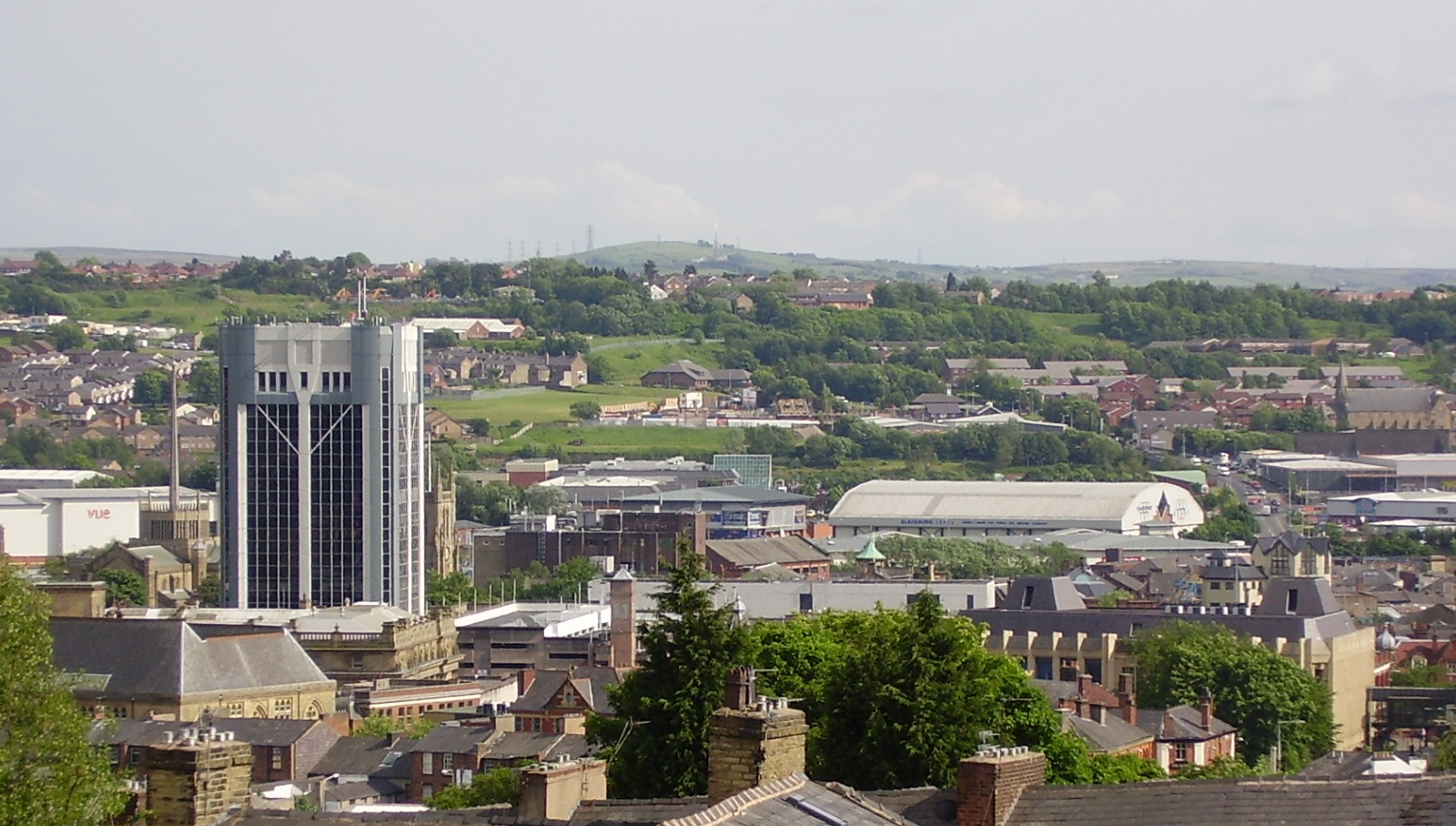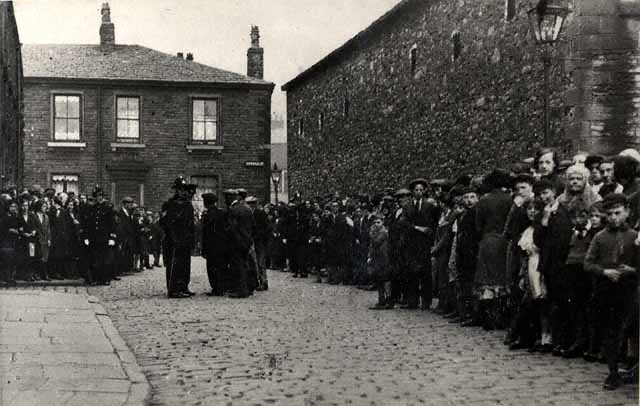|
1891–92 Football League
The 1891– 92 Football League was the fourth season of English league football, and the last season of the football league running in a single division. Sunderland were the winners of the league which was their first ever league success. At the beginning of the season Stoke had left the Football Alliance and rejoined the Football League. Darwen also joined from the Alliance but they conceded 112 goals and finished bottom. Final league table The table below is reproduced here in the exact form that it can be found at thRec.Sport.Soccer Statistics Foundationwebsite and in ''Rothmans Book of Football League Records 1888–89 to 1978–79'',Ian Laschke: ''Rothmans Book of Football League Records 1888–89 to 1978–79''. Macdonald and Jane’s, London & Sydney, 1980. with home and away statistics separated. Beginning with the season 1894–95, clubs finishing level on points were separated according to goal average (goals scored divided by goals conceded). In case one or more team ... [...More Info...] [...Related Items...] OR: [Wikipedia] [Google] [Baidu] |
Sunderland A
Sunderland () is a port city in Tyne and Wear, England. It is the City of Sunderland's administrative centre and in the Historic counties of England, historic county of County of Durham, Durham. The city is from Newcastle-upon-Tyne and is on the River Wear's mouth to the North Sea. The river also flows through Durham, England, Durham roughly south-west of Sunderland City Centre. It is the only other city in the county and the second largest settlement in the North East England, North East after Newcastle upon Tyne. Locals from the city are sometimes known as Mackems. The term originated as recently as the early 1980s; its use and acceptance by residents, particularly among the older generations, is not universal. At one time, ships built on the Wear were called "Jamies", in contrast with those Tyneside, from the Tyne, which were known as "Geordies", although in the case of "Jamie" it is not known whether this was ever extended to people. There were three original settlements ... [...More Info...] [...Related Items...] OR: [Wikipedia] [Google] [Baidu] |
Bolton Wanderers F
Bolton (, locally ) is a large town in Greater Manchester in North West England, formerly a part of Lancashire. A former mill town, Bolton has been a production centre for textiles since Flemish weavers settled in the area in the 14th century, introducing a wool and cotton-weaving tradition. The urbanisation and development of the town largely coincided with the introduction of textile manufacture during the Industrial Revolution. Bolton was a 19th-century boomtown and, at its zenith in 1929, its 216 cotton mills and 26 bleaching and dyeing works made it one of the largest and most productive centres of cotton spinning in the world. The British cotton industry declined sharply after the First World War and, by the 1980s, cotton manufacture had virtually ceased in Bolton. Close to the West Pennine Moors, Bolton is north-west of Manchester and lies between Manchester, Darwen, Blackburn, Chorley, Bury and Salford. It is surrounded by several neighbouring ... [...More Info...] [...Related Items...] OR: [Wikipedia] [Google] [Baidu] |
Bolton And Preston Rivalry
Bolton (, locally ) is a large town in Greater Manchester in North West England, formerly a part of Lancashire. A former mill town, Bolton has been a production centre for textiles since Flemish weavers settled in the area in the 14th century, introducing a wool and cotton-weaving tradition. The urbanisation and development of the town largely coincided with the introduction of textile manufacture during the Industrial Revolution. Bolton was a 19th-century boomtown and, at its zenith in 1929, its 216 cotton mills and 26 bleaching and dyeing works made it one of the largest and most productive centres of cotton spinning in the world. The British cotton industry declined sharply after the First World War and, by the 1980s, cotton manufacture had virtually ceased in Bolton. Close to the West Pennine Moors, Bolton is north-west of Manchester and lies between Manchester, Darwen, Blackburn, Chorley, Bury and Salford. It is surrounded by several neighbouring towns a ... [...More Info...] [...Related Items...] OR: [Wikipedia] [Google] [Baidu] |
Blackburn And Preston Rivalry
Blackburn () is an industrial town and the administrative centre of the Blackburn with Darwen borough in Lancashire, England. The town is north of the West Pennine Moors on the southern edge of the Ribble Valley, east of Preston and north-northwest of Manchester. Blackburn is the core centre of the wider unitary authority area along with the town of Darwen. It is one of the largest districts in Lancashire, with commuter links to neighbouring cities of Manchester, Salford, Preston, Lancaster, Liverpool, Bradford and Leeds. At the 2011 census, Blackburn had a population of 117,963, whilst the wider borough of Blackburn with Darwen had a population of 150,030. Blackburn had a population of 117,963 in 2011, with 30.8% being people of ethnic backgrounds other than white British. A former mill town, textiles have been produced in Blackburn since the middle of the 13th century, when wool was woven in people's houses in the domestic system. Flemish weavers who settl ... [...More Info...] [...Related Items...] OR: [Wikipedia] [Google] [Baidu] |
East Lancashire Derby
The East Lancashire derby, also known as the Cotton Mills derby and El Lanclasico, is an association football rivalry between Blackburn Rovers and Burnley. The nickname originates from the fact that both Blackburn and Burnley are former mill towns. From a town standpoint there is a geographical reason for the rivalry as the two Lancashire towns only lie 11 miles (18 km) apart. Accrington Stanley F.C. is based in the middle, but is not regarded as a rival by either. Following the founding of Turton F.C. in Edgworth in 1871, several football clubs were formed in East Lancashire in the next years, such as Blackburn Rovers in 1875, Accrington in 1876 and Burnley in 1882. Rovers and Burnley played each other for the first time in September 1884 in a friendly match, with Blackburn winning 4–2. Between 1884 and 1888, the clubs met thirteen times, with Burnley winning seven matches and Rovers four. The first competitive league game between these two founder members of the Footbal ... [...More Info...] [...Related Items...] OR: [Wikipedia] [Google] [Baidu] |
Blackburn And Bolton Rivalry
Blackburn () is an industrial town and the administrative centre of the Blackburn with Darwen borough in Lancashire, England. The town is north of the West Pennine Moors on the southern edge of the Ribble Valley, east of Preston and north-northwest of Manchester. Blackburn is the core centre of the wider unitary authority area along with the town of Darwen. It is one of the largest districts in Lancashire, with commuter links to neighbouring cities of Manchester, Salford, Preston, Lancaster, Liverpool, Bradford and Leeds. At the 2011 census, Blackburn had a population of 117,963, whilst the wider borough of Blackburn with Darwen had a population of 150,030. Blackburn had a population of 117,963 in 2011, with 30.8% being people of ethnic backgrounds other than white British. A former mill town, textiles have been produced in Blackburn since the middle of the 13th century, when wool was woven in people's houses in the domestic system. Flemish weavers who sett ... [...More Info...] [...Related Items...] OR: [Wikipedia] [Google] [Baidu] |
Villa And Wolves Rivalry
A villa is a type of house that was originally an ancient Roman upper class country house. Since its origins in the Roman villa, the idea and function of a villa have evolved considerably. After the fall of the Roman Republic, villas became small farming compounds, which were increasingly fortified in Late Antiquity, sometimes transferred to the Church for reuse as a monastery. Then they gradually re-evolved through the Middle Ages into elegant upper-class country homes. In the Early Modern period, any comfortable detached house with a garden near a city or town was likely to be described as a villa; most survivals have now been engulfed by suburbia. In modern parlance, "villa" can refer to various types and sizes of residences, ranging from the suburban semi-detached double villa to, in some countries, especially around the Mediterranean, residences of above average size in the countryside. Roman Roman villas included: * the ''villa urbana'', a suburban or count ... [...More Info...] [...Related Items...] OR: [Wikipedia] [Google] [Baidu] |
West Midlands Derby
West or Occident is one of the four cardinal directions or points of the compass. It is the opposite direction from east and is the direction in which the Sun sets on the Earth. Etymology The word "west" is a Germanic word passed into some Romance languages (''ouest'' in French, ''oest'' in Catalan, ''ovest'' in Italian, ''oeste'' in Spanish and Portuguese). As in other languages, the word formation stems from the fact that west is the direction of the setting sun in the evening: 'west' derives from the Indo-European root ''*wes'' reduced from ''*wes-pero'' 'evening, night', cognate with Ancient Greek ἕσπερος hesperos 'evening; evening star; western' and Latin vesper 'evening; west'. Examples of the same formation in other languages include Latin occidens 'west' from occidō 'to go down, to set' and Hebrew מַעֲרָב maarav 'west' from עֶרֶב erev 'evening'. Navigation To go west using a compass for navigation (in a place where magnetic north is the same dire ... [...More Info...] [...Related Items...] OR: [Wikipedia] [Google] [Baidu] |
Derby County F
Derby ( ) is a city and unitary authority area in Derbyshire, England. It lies on the banks of the River Derwent in the south of Derbyshire, which is in the East Midlands Region. It was traditionally the county town of Derbyshire. Derby gained city status in 1977, the population size has increased by 5.1%, from around 248,800 in 2011 to 261,400 in 2021. Derby was settled by Romans, who established the town of Derventio, later captured by the Anglo-Saxons, and later still by the Vikings, who made their town of one of the Five Boroughs of the Danelaw. Initially a market town, Derby grew rapidly in the industrial era. Home to Lombe's Mill, an early British factory, Derby has a claim to be one of the birthplaces of the Industrial Revolution. It contains the southern part of the Derwent Valley Mills World Heritage Site. With the arrival of the railways in the 19th century, Derby became a centre of the British rail industry. Derby is a centre for advanced transport manufactu ... [...More Info...] [...Related Items...] OR: [Wikipedia] [Google] [Baidu] |
Blackburn Rovers F
Blackburn () is an industrial town and the administrative centre of the Blackburn with Darwen borough in Lancashire, England. The town is north of the West Pennine Moors on the southern edge of the River Ribble, Ribble Valley, east of Preston, Lancashire, Preston and north-northwest of Manchester. Blackburn is the core centre of the wider unitary authority area along with the town of Darwen. It is one of the largest districts in Lancashire, with commuter links to neighbouring cities of Manchester, Salford, Greater Manchester, Salford, Preston, Lancashire, Preston, Lancaster, Lancashire, Lancaster, Liverpool, Bradford and Leeds. At the United Kingdom Census 2011, 2011 census, Blackburn had a population of List of urban areas in England by population, 117,963, whilst the wider borough of Blackburn with Darwen had a population of List of English districts by population, 150,030. Blackburn had a population of 117,963 in 2011, with 30.8% being people of ethnic backgrounds other ... [...More Info...] [...Related Items...] OR: [Wikipedia] [Google] [Baidu] |
Notts County F
{{Disambiguation ...
Notts may refer to: * Nottinghamshire * Notts County FC, an association football club See also * Nott (other) Nott may refer to: People *Abraham Nott, a United States Representative *Charles Stanley Nott, an author *Charles Cooper Nott (other), two New York judges *Eliphalet Nott, President of Union College and Rensselaer Polytechnic Institute *Fr ... [...More Info...] [...Related Items...] OR: [Wikipedia] [Google] [Baidu] |






